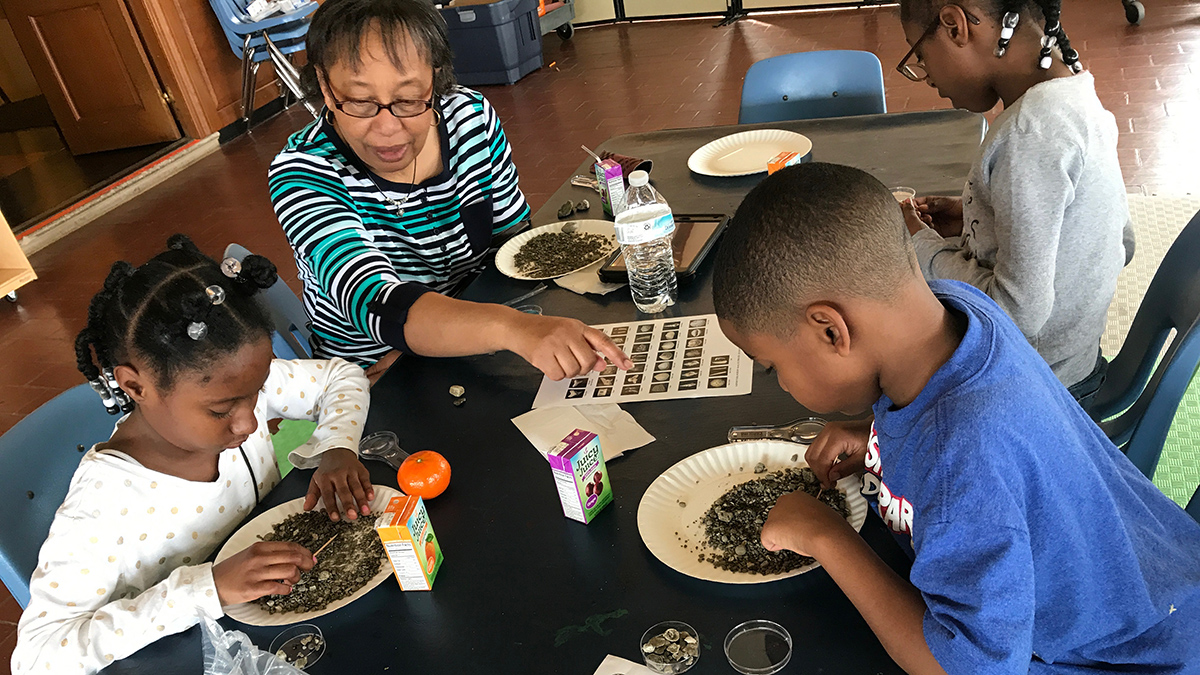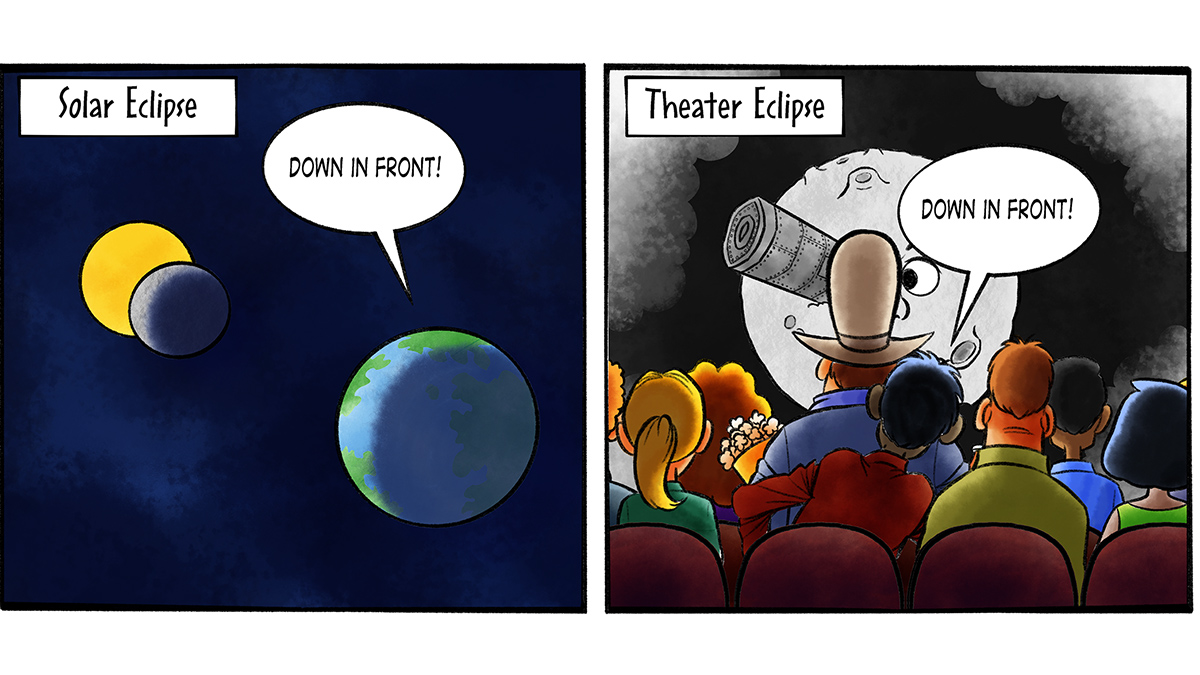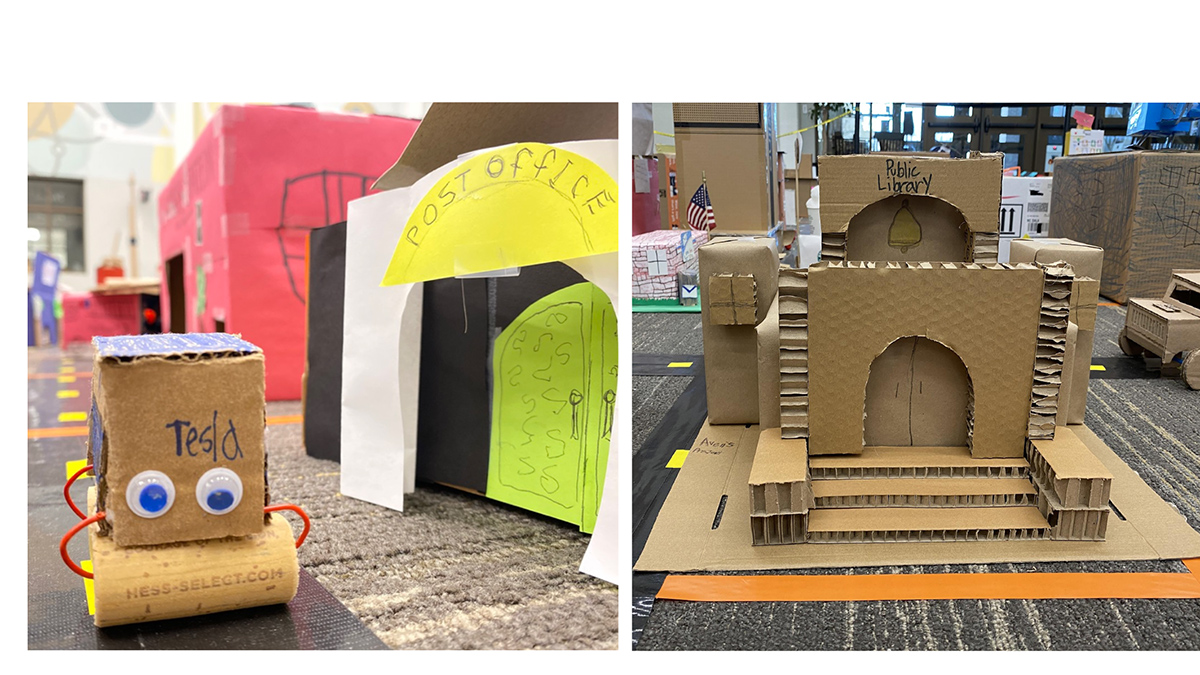feature
Student Self-Care in the Sciences
A Self-Care Intervention in an Undergraduate Physiological Psychology Course
Instructor support is associated with various positive outcomes for students. Self-care (taking care of one’s physical, mental, and emotional health) has become a mainstream concept. Self-care may be one way for students to increase wellness, particularly students enrolled in rigorous science courses. If self-care is facilitated or suggested by an instructor, it may lead to students’ feelings that they are supported by the instructor. In the study discussed in this article, 45 students enrolled in a physiological psychology course (an upper-level online course) participated in a control group section or an experimental group section that included an integrated self-care blog and supporting communication. Across both groups, a sense of classroom community and professor-student rapport were related to a variety of positive perceptions about the course and instructor. Students in the self-care section rated the course more positively across several variables, but this rating only nearly reached significance for instructor warmth. The self-care blog was easy to implement and well received by students. Integrated discussions about self-care may help students connect with their instructor and can facilitate skills that will benefit students in future semesters.
Instructor support is associated with various positive outcomes for students. Self-care (taking care of one’s physical, mental, and emotional health) has become a mainstream concept. Self-care may be one way for students to increase wellness, particularly students enrolled in rigorous science courses. If self-care is facilitated or suggested by an instructor, it may lead to students’ feelings that they are supported by the instructor.
Instructor support is associated with various positive outcomes for students. Self-care (taking care of one’s physical, mental, and emotional health) has become a mainstream concept. Self-care may be one way for students to increase wellness, particularly students enrolled in rigorous science courses. If self-care is facilitated or suggested by an instructor, it may lead to students’ feelings that they are supported by the instructor.
feature
Development and Implementation of an Undergraduate STEM Peer Coaching Program
Journal of College Science Teaching—Fall 2023 (Volume 52, Issue 7)
By Laura E. Swann, Jonathan L. Hall, Katie Vaccaro-Garska, Samantha R. Seals, and Pamela P. Benz
Undergraduate science, technology, engineering, and mathematics (STEM) experiences have academic, psychological, and social challenges that require additional support to navigate. This article explains the implementation of a STEM peer coaching program designed to provide such support. Through this program, undergraduate STEM students served as STEM peer coaches. Coaches facilitated one-on-one conversations focused on individualized support and skill development. Using carefully constructed planning and reflecting conversations, STEM peer coaches helped students clarify their goals and create plans for success. STEM peer coaches also served as accountability partners. Anecdotal evidence from students who participated in the program shows that STEM peer coaches provided meaningful academic support. The STEM peer coaching program is a model for how peer-led, individualized conversations can be a catalyst for helping students through challenges related to STEM. The article discusses key strategies for developing and implementing a STEM peer coaching program.
Undergraduate science, technology, engineering, and mathematics (STEM) experiences have academic, psychological, and social challenges that require additional support to navigate. This article explains the implementation of a STEM peer coaching program designed to provide such support. Through this program, undergraduate STEM students served as STEM peer coaches. Coaches facilitated one-on-one conversations focused on individualized support and skill development.
Undergraduate science, technology, engineering, and mathematics (STEM) experiences have academic, psychological, and social challenges that require additional support to navigate. This article explains the implementation of a STEM peer coaching program designed to provide such support. Through this program, undergraduate STEM students served as STEM peer coaches. Coaches facilitated one-on-one conversations focused on individualized support and skill development.
feature
Using a Socioscientific Issues Approach in an Undergraduate Environmental Science Course
Journal of College Science Teaching—Fall 2023 (Volume 52, Issue 7)
By Mark H. Newton
A perennial goal of science educators is to develop functional scientific literacy in their students, especially those who will not become professional scientists. This article provides an example of implementing a socioscientific issues approach in an undergraduate environmental science course that enables students to develop the knowledge, reasoning, and skills requisite for resolving complex issues in a sustainable manner for people and the environment now and in the future. This example incorporates an interdisciplinary approach by leveraging traditional laboratory investigations and information from outside of science proper to facilitate a deeper and more nuanced understanding of gray wolves returning to Northern California.
A perennial goal of science educators is to develop functional scientific literacy in their students, especially those who will not become professional scientists. This article provides an example of implementing a socioscientific issues approach in an undergraduate environmental science course that enables students to develop the knowledge, reasoning, and skills requisite for resolving complex issues in a sustainable manner for people and the environment now and in the future.
A perennial goal of science educators is to develop functional scientific literacy in their students, especially those who will not become professional scientists. This article provides an example of implementing a socioscientific issues approach in an undergraduate environmental science course that enables students to develop the knowledge, reasoning, and skills requisite for resolving complex issues in a sustainable manner for people and the environment now and in the future.
feature
Emphasis on Quality in iNaturalist Plant Collections Enhances Learning and Research Utility
Journal of College Science Teaching—Fall 2023 (Volume 52, Issue 7)
By Mason C. McNair, Chelsea M. Sexton, and Mark Zenoble
Following the switch to remote online teaching in the wake of the COVID-19 pandemic, the plant taxonomy course at the University of Georgia (UGA) switched to iNaturalist for the specimen collection portion of the course requirements. Building off extant rubrics, the instructors designed project guidelines for a fully online plant collection experience to alleviate plant awareness disparity. Researchers collected stratified samples from the UGA iNaturalist project along with four other institutions’ projects to determine if rubrics and project guidelines could improve the quality of observations to make them useful in plant science research. The specific rubric was shown to improve quality of iNaturalist observations. Researchers found that iNaturalist increased engagement as a student-centered tool but did not enhance students’ manual keying skills, as the app uses automatic identification. Instructors recommend continuing to use iNaturalist to supplement physical collection and keying along with a detailed rubric and guidelines for collection.
Following the switch to remote online teaching in the wake of the COVID-19 pandemic, the plant taxonomy course at the University of Georgia (UGA) switched to iNaturalist for the specimen collection portion of the course requirements. Building off extant rubrics, the instructors designed project guidelines for a fully online plant collection experience to alleviate plant awareness disparity.
Following the switch to remote online teaching in the wake of the COVID-19 pandemic, the plant taxonomy course at the University of Georgia (UGA) switched to iNaturalist for the specimen collection portion of the course requirements. Building off extant rubrics, the instructors designed project guidelines for a fully online plant collection experience to alleviate plant awareness disparity.
feature
Undergraduate Learning Assistants Foster Students’ Resilience During Transition to Online Learning in a Large Microbiology Classroom
Journal of College Science Teaching—Fall 2023 (Volume 52, Issue 7)
By Kathleen Hefferon and Esther Angert
The COVID-19 pandemic led to a series of emergency transitions to online learning for academic institutions around the world. Previous studies have shown that undergraduate Learning Assistants (LAs) improve student engagement in classroom activities and learning outcomes. In this article, we describe the design and implementation of an LA program to support students in a large microbiology course during the transition to remote learning. We demonstrate that students were more likely to engage with LAs and participate in LA-led classroom activities. LAs promoted more help-seeking behavior from the students and, as a result, contributed to improvements in learning gains. Incorporating LAs into the classroom can thus foster students’ resilience in the face of the current and possible future pandemics.
The COVID-19 pandemic led to a series of emergency transitions to online learning for academic institutions around the world. Previous studies have shown that undergraduate Learning Assistants (LAs) improve student engagement in classroom activities and learning outcomes. In this article, we describe the design and implementation of an LA program to support students in a large microbiology course during the transition to remote learning. We demonstrate that students were more likely to engage with LAs and participate in LA-led classroom activities.
The COVID-19 pandemic led to a series of emergency transitions to online learning for academic institutions around the world. Previous studies have shown that undergraduate Learning Assistants (LAs) improve student engagement in classroom activities and learning outcomes. In this article, we describe the design and implementation of an LA program to support students in a large microbiology course during the transition to remote learning. We demonstrate that students were more likely to engage with LAs and participate in LA-led classroom activities.
methods & strategies
Family Science Clubs
Ideas to get families excited about science
Science and Children—Fall 2023 (Volume 60, Issue 7)
By M. Gail Jones and Megan Ennes

Educators are increasingly recognizing that significant amounts of science learning take place over the course of one’s lifetime and that much of this learning takes place outside of school settings (NRC 2009). Americans spend on average “less than 5 percent of their life in classrooms” (Falk and Dierking 2010, p. 486).
Educators are increasingly recognizing that significant amounts of science learning take place over the course of one’s lifetime and that much of this learning takes place outside of school settings (NRC 2009). Americans spend on average “less than 5 percent of their life in classrooms” (Falk and Dierking 2010, p. 486).
Educators are increasingly recognizing that significant amounts of science learning take place over the course of one’s lifetime and that much of this learning takes place outside of school settings (NRC 2009). Americans spend on average “less than 5 percent of their life in classrooms” (Falk and Dierking 2010, p. 486).
science 101
Q: What Can My Students See During the Upcoming Solar Eclipses?
Science and Children—Fall 2023 (Volume 60, Issue 7)
By Matt Bobrowsky

A: It depends on where you are located. But first let’s briefly review what happens during a solar eclipse and clear up a few popular misconceptions about solar eclipses. You probably know that a solar eclipse occurs when the Moon passes between the Earth and Sun. The usual diagram that you’ll find in textbooks and countless websites looks something like Figure 1.
A: It depends on where you are located. But first let’s briefly review what happens during a solar eclipse and clear up a few popular misconceptions about solar eclipses. You probably know that a solar eclipse occurs when the Moon passes between the Earth and Sun. The usual diagram that you’ll find in textbooks and countless websites looks something like Figure 1.
A: It depends on where you are located. But first let’s briefly review what happens during a solar eclipse and clear up a few popular misconceptions about solar eclipses. You probably know that a solar eclipse occurs when the Moon passes between the Earth and Sun. The usual diagram that you’ll find in textbooks and countless websites looks something like Figure 1.
teaching teachers
Making the Most of Field Trips
Envisioning how to connect field trips to the curriculum sets preservice teachers up for success.
Science and Children—Fall 2023 (Volume 60, Issue 7)
By Nicole Hesson

Field trips can be a unique way to engage elementary students in science content. However, budget cuts and a focus on standardized testing are causing some schools to greatly reduce the funding for field trips (Meyer 2008). In the wake of the last recession, 33% of districts nationwide eliminated field trips altogether (Mongeau 2015). The COVID-19 pandemic has also had a negative impact on the logistic feasibility and budget allotment for field trips. The benefits of field trips—particularly for underprivileged students—have been widely studied (Behrendt and Franklin 2014; Mongeau 2015). Field trips can provide a way for teachers to bring science to life and better integrate higher-order thinking skills into lessons. According to Kisiel (2005), “although teachers may report that a primary reason for including the field trip experience is to support what they are teaching in class, studies suggest that this curriculum connection is sometimes quite weak.” In today’s financial climate, field trips are more likely to be funded if there is a clear curricular connection. Ensuring a strong relationship between classroom and out-of-school learning is something that must be taught in preservice teacher education programs.
Field trips can be a unique way to engage elementary students in science content. However, budget cuts and a focus on standardized testing are causing some schools to greatly reduce the funding for field trips (Meyer 2008). In the wake of the last recession, 33% of districts nationwide eliminated field trips altogether (Mongeau 2015). The COVID-19 pandemic has also had a negative impact on the logistic feasibility and budget allotment for field trips.
Field trips can be a unique way to engage elementary students in science content. However, budget cuts and a focus on standardized testing are causing some schools to greatly reduce the funding for field trips (Meyer 2008). In the wake of the last recession, 33% of districts nationwide eliminated field trips altogether (Mongeau 2015). The COVID-19 pandemic has also had a negative impact on the logistic feasibility and budget allotment for field trips.
engineering encounters
Cardboard City
A whole-school integrative engineering experience
Science and Children—Fall 2023 (Volume 60, Issue 7)
By Julie Jackson, Julie Brenegan, Kristi Wagner, and Michelle Berry

Cardboard, a common maker space material, is inexpensive, readily available, and durable. It is also easy to manipulate. It can be folded, cut, painted, and taped or glued together. Caine’s Arcade, a video featuring Caine Monroy’s cardboard arcade, inspired countless cardboard maker space events and engineering design challenges (see Online Resources). For several years, we held multi-grade level cardboard arcade engineering design challenges. Participating students designed and built cardboard arcade games that were displayed in school hallways. However, this year, we wanted to elevate our K–5 grade cardboard engineering challenge to support other school subjects such as technology, language arts, math, and social studies and we wanted it to be interactive—not just a display. We decided that a “cardboard city” engineering challenge might provide the interactive and integrative opportunities we wanted.
Cardboard, a common maker space material, is inexpensive, readily available, and durable. It is also easy to manipulate. It can be folded, cut, painted, and taped or glued together. Caine’s Arcade, a video featuring Caine Monroy’s cardboard arcade, inspired countless cardboard maker space events and engineering design challenges (see Online Resources). For several years, we held multi-grade level cardboard arcade engineering design challenges. Participating students designed and built cardboard arcade games that were displayed in school hallways.
Cardboard, a common maker space material, is inexpensive, readily available, and durable. It is also easy to manipulate. It can be folded, cut, painted, and taped or glued together. Caine’s Arcade, a video featuring Caine Monroy’s cardboard arcade, inspired countless cardboard maker space events and engineering design challenges (see Online Resources). For several years, we held multi-grade level cardboard arcade engineering design challenges. Participating students designed and built cardboard arcade games that were displayed in school hallways.
start with phenomena
How Does Sound Travel in a String?
Facilitating a change in sound conception with fourth graders
Science and Children—Fall 2023 (Volume 60, Issue 7)
By Gang Shu, Xiaowei Tang, and Huimin Chen


